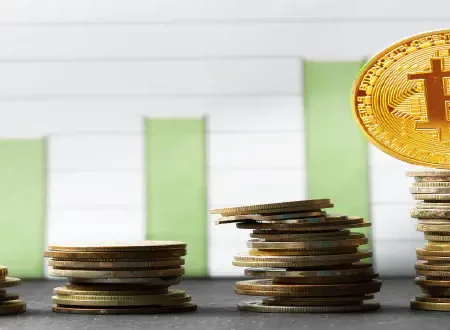Bitcoin, the world’s most popular cryptocurrency, has gained significant attention in recent years. With its decentralized nature and potential for profit, many individuals are interested in buying their own bitcoins. However, for beginners, the process can seem daunting. This guide will provide an overview of how to buy a bitcoin, from setting up a wallet to making your first purchase.
Step 1: Set up a Bitcoin wallet
Before you can purchase bitcoins, you’ll need to set up a Bitcoin wallet. This is where you will store and manage your bitcoins. There are several types of wallets available, including hardware wallets, software wallets, and online wallets. Each has its own advantages and security measures, so it’s important to choose the one that best fits your needs.
Step 2: Choose a Bitcoin exchange
Once you have a wallet, you’ll need to find a Bitcoin exchange where you can buy bitcoins. There are many exchanges to choose from, each with its own fees and features. Research different exchanges to find one that is reputable and offers a user-friendly interface. It’s also important to consider factors such as security measures, customer support, and available payment options.
Step 3: Verify your identity
Most reputable Bitcoin exchanges require users to verify their identity before they can make a purchase. This is to comply with regulations and prevent fraudulent activity. To verify your identity, you’ll typically need to provide personal information and upload documents, such as a photo ID or proof of address. This process can take some time, so it’s important to be patient and provide accurate information.
Step 4: Make your purchase
Once your identity is verified, you can proceed with making your first Bitcoin purchase. Most exchanges offer various payment methods, such as bank transfers, credit/debit card payments, and even cash. Choose the payment method that is most convenient for you and follow the instructions provided by the exchange. After completing the transaction, the bitcoins will be transferred to your wallet.
Remember, buying bitcoins involves some risks, so it’s important to do your research and be cautious. Keep in mind that the value of bitcoins can fluctuate greatly, so it’s important to only invest what you can afford to lose. Additionally, be aware of potential scams and phishing attempts. Always double-check the website’s URL and ensure that you are using a reputable exchange before entering any personal information. With the right precautions, buying bitcoins can be a rewarding and exciting venture.
Bitcoin basics
Bitcoin is a digital currency that was created in 2009 by an unknown person or group of people using the name Satoshi Nakamoto.
Here are some key points to understand about Bitcoin:
- Decentralized: Bitcoin operates on a decentralized network, meaning that it is not controlled by any central authority such as a government or financial institution.
- Blockchain technology: Bitcoin transactions are recorded on a public ledger called the blockchain. This technology ensures transparency and security.
- Limited supply: There will only ever be 21 million bitcoins in existence. This scarcity makes bitcoin a deflationary asset.
- Divisibility: Bitcoin is divisible, meaning that it can be broken down into smaller units. The smallest unit of bitcoin is called a satoshi.
Bitcoin can be used for various purposes, such as:
- Purchasing goods and services: Many online and some physical stores accept bitcoin as a form of payment.
- Investment: Some people buy bitcoin as an investment, hoping that its value will increase over time.
- Remittances: Bitcoin can be used to send money internationally at a lower cost compared to traditional methods.
Before buying bitcoin, it is important to set up a secure wallet to store your bitcoins. This wallet can be software-based or hardware-based.
Once you have a wallet, you can buy bitcoin from various platforms called exchanges. These exchanges allow you to buy bitcoin using traditional fiat currency or other cryptocurrencies.
It’s important to do your research and choose a reputable exchange to ensure the safety of your funds.
Remember that the price of bitcoin can be highly volatile, so it’s important to only invest what you can afford to lose.
| Advantages of Bitcoin | Disadvantages of Bitcoin |
|---|---|
| DecentralizationTransparencySecurity | Price volatilityLimited acceptancePotential for illegal activities |
What is bitcoin?
Bitcoin is a decentralized digital currency that was created in 2009 by an unknown person or group of people using the name Satoshi Nakamoto. It operates on a peer-to-peer network, meaning that transactions can be made directly between users without the need for intermediaries such as banks or governments.
Key Features of Bitcoin:
- Decentralization: Bitcoin is not regulated or controlled by any central authority, such as a government or financial institution. This makes it resistant to manipulation or censorship.
- Pseudonymity: While bitcoin transactions are recorded on a public ledger called the blockchain, users can remain pseudonymous. This means that transactions are linked to a specific bitcoin address rather than the user’s personal information.
- Security: Bitcoin uses cryptographic techniques to secure transactions and control the creation of new units. This makes it extremely difficult to counterfeit or manipulate.
- Limited Supply: There will only ever be 21 million bitcoins in existence. This scarcity is one of the factors that contribute to its value.
- Divisibility: Bitcoin can be divided into smaller units called satoshis, with each bitcoin being equivalent to 100 million satoshis. This allows for micro-transactions and flexibility in pricing.
How Does Bitcoin Work?
Bitcoin operates on a technology called blockchain. The blockchain is a decentralized ledger that records all bitcoin transactions. When a transaction is made, it is broadcasted to the network and grouped with other transactions to form a “block.” Miners then compete to solve complex mathematical problems to validate the block and add it to the blockchain. Once the block is added, the transaction is considered confirmed, and the bitcoin is transferred from one user to another.
Uses of Bitcoin:
- Purchasing Goods and Services: Bitcoin can be used to buy a wide range of goods and services from online and offline merchants that accept it as a form of payment.
- Investment: Many people buy bitcoin as an investment, hoping that its value will increase over time. Bitcoin has seen significant price volatility, making it a popular choice among traders.
- Remittances: Bitcoin is often used for cross-border money transfers due to its low fees and quick transaction times compared to traditional remittance services.
- Store of Value: Some individuals see bitcoin as a store of value similar to gold, especially in countries where traditional currencies are experiencing hyperinflation or political instability.
Overall, bitcoin has gained significant attention and popularity due to its potential to disrupt traditional financial systems and offer users more control over their money.
Benefits of Bitcoin
Bitcoin, the world’s first decentralized digital currency, offers several benefits for its users:
1. Decentralization
One of Bitcoin’s key benefits is its decentralized nature. It operates on a peer-to-peer network, meaning that transactions take place directly between users without the need for intermediaries like banks or governments. This decentralization provides individuals with greater control over their finances and eliminates the risk of central authority manipulation.
2. Security
Bitcoin transactions are secured by cryptography, making them highly secure. The blockchain technology that underlies Bitcoin ensures that each transaction is recorded on a distributed ledger, which is accessible to anyone but cannot be altered or tampered with. Additionally, Bitcoin offers users the option to be in control of their private keys, which adds an extra layer of security.
3. Privacy
While Bitcoin transactions are recorded on a public ledger, the identities of the parties involved are not necessarily disclosed. Users can operate under pseudonyms, which allows for a certain level of privacy. However, it’s important to note that Bitcoin transactions can be traced back through the blockchain, so users should take additional measures to protect their identity if desired.
4. Lower Transaction Fees
Compared to traditional banking systems, Bitcoin transactions typically have lower fees. This is due to the absence of intermediaries and the use of decentralized networks. While transaction fees may vary depending on network congestion, overall, Bitcoin offers a more cost-effective payment system.
5. Global Accessibility
Bitcoin is accessible to anyone with an internet connection, regardless of their location. This makes it an excellent option for individuals who don’t have access to traditional banking systems or live in areas with limited financial infrastructure. With Bitcoin, anyone can participate in the global financial ecosystem.
6. Potential for Investment
Bitcoin’s limited supply and growing adoption have made it an attractive investment opportunity for many. As demand increases and supply remains capped, the value of Bitcoin has the potential to appreciate over time. However, it’s important to remember that investing in Bitcoin carries risks, and individuals should do their own research and exercise caution.
Overall, Bitcoin offers numerous benefits, including decentralization, security, privacy, lower transaction fees, global accessibility, and investment potential. It’s important for users to understand the risks and take appropriate measures to ensure the safe and responsible use of Bitcoin.
Understanding cryptocurrency
Cryptocurrency is a form of digital or virtual currency that uses cryptography for security. Unlike traditional currencies issued by governments, such as the US Dollar or Euro, cryptocurrencies are decentralized and operate on a technology called blockchain.
Key concepts of cryptocurrency:
- Decentralization: Cryptocurrencies are not controlled by any central authority, such as a government or a bank. Instead, they are peer-to-peer networks that rely on a distributed ledger called a blockchain.
- Blockchain: A blockchain is a public ledger that records all transactions on the network. It ensures transparency and prevents double-spending, where the same cryptocurrency unit is used multiple times.
- Cryptography: Cryptocurrencies use cryptographic techniques to secure transactions and control the creation of new units. This ensures the integrity and security of the network.
- Wallets: Cryptocurrency wallets are digital applications or devices used to store and manage cryptocurrencies. Wallets consist of a pair of cryptographic keys: a public key for receiving funds and a private key for accessing and sending funds.
Popular cryptocurrencies:
| Name | Symbol | Market Cap |
|---|---|---|
| Bitcoin | BTC | $1 trillion |
| Ethereum | ETH | $200 billion |
| Ripple | XRP | $50 billion |
Bitcoin is the first and most well-known cryptocurrency, with the largest market cap. Ethereum is a cryptocurrency that supports smart contracts and decentralized applications. Ripple is a cryptocurrency designed for fast and low-cost international money transfers.
Getting Started
1. Set up a digital wallet
Before you can buy bitcoin, you’ll need a digital wallet to store your cryptocurrency. A digital wallet is like a virtual bank account that allows you to securely store, send, and receive bitcoins.
You can choose from a variety of digital wallet options, including online wallets, mobile wallets, desktop wallets, and hardware wallets. Research different wallet providers to find one that meets your needs in terms of ease of use, security, and supported features.
2. Choose a reputable cryptocurrency exchange
Once you have a digital wallet, you’ll need to find a reputable cryptocurrency exchange where you can buy bitcoin. An exchange is an online platform where you can trade cryptocurrencies for other digital assets or traditional fiat currencies (such as USD or EUR).
When choosing an exchange, consider factors such as its security measures, user interface, fees, customer support, and the availability of bitcoin in your country. Some popular cryptocurrency exchanges include Coinbase, Binance, Kraken, and Bitstamp.
3. Complete the registration process
Before you can start buying bitcoin on an exchange, you’ll need to complete the registration process. This usually involves providing your email address, creating a strong password, and verifying your identity.
Depending on the exchange and local regulations, you may also need to provide additional documentation, such as a government-issued ID or proof of address.
4. Fund your account
Once you’ve completed the registration process, you’ll need to fund your exchange account. Most exchanges allow you to deposit funds using a bank transfer, debit/credit card, or other cryptocurrencies.
Be sure to check the deposit options and any associated fees before making a deposit. It’s also recommended to start with a small amount of money until you’re comfortable with the process.
5. Place an order to buy bitcoin
With a funded account, you’re ready to start buying bitcoin. On the exchange platform, navigate to the trading section and select the option to buy bitcoin.
You’ll usually be able to specify the amount of bitcoin you want to buy or the amount of fiat currency you want to spend. The exchange will then match your order with available sellers and execute the transaction at the current market price.
Alternatively, you can also set a specific price at which you’re willing to buy bitcoin and wait for a seller to match your price.
6. Secure your bitcoin
Once you’ve purchased bitcoin, it’s important to take steps to secure your investment. This includes transferring your bitcoin from the exchange to your digital wallet, which provides an extra layer of security.
When transferring your bitcoin, double-check the recipient address to ensure it’s correct. It’s also recommended to enable two-factor authentication on your wallet for added protection.
7. Stay informed and be cautious
As with any investment, buying bitcoin comes with risks. Stay informed about the cryptocurrency market, keep up with news and developments, and be cautious of scams.
Be aware that the value of bitcoin can be highly volatile, and there is always the risk of losing your investment. It’s important to only invest what you can afford to lose and to do your due diligence before making any investment decisions.
Consider diversifying your investment portfolio and consulting with a financial advisor if you’re unsure about investing in bitcoin or any other cryptocurrency.
Setting up a bitcoin wallet
Before you can buy bitcoins, you’ll need to set up a bitcoin wallet. A bitcoin wallet is a digital wallet that allows you to securely store, send, and receive bitcoins.
There are various types of bitcoin wallets available, each with its own features and security levels. Here are a few popular options:
Online wallets
Online wallets are hosted on the cloud, allowing you to access your bitcoins from any device with an internet connection. These wallets are convenient but may be more vulnerable to security breaches. Popular online wallet providers include Coinbase, Blockchain.com, and BitPay.
Desktop wallets
Desktop wallets are software applications that you install on your computer. They give you complete control over your bitcoins but require you to take responsibility for securing your private keys. Some popular desktop wallet options are Electrum, Exodus, and Bitcoin Core.
Mobile wallets
Mobile wallets are apps that you download on your smartphone or tablet. They are convenient for making transactions on the go but may have limited features compared to other wallet types. Popular mobile wallet options include Mycelium, Breadwallet, and Edge.
Hardware wallets
Hardware wallets are physical devices that store your private keys offline. They offer the highest level of security but are more expensive. Popular hardware wallet brands include Trezor, Ledger, and KeepKey.
Paper wallets
Paper wallets are physical printouts or handwritten copies of your bitcoin addresses and private keys. They are not as convenient for everyday use but offer high security by keeping your bitcoins completely offline. You can generate a paper wallet using services like Bitaddress.org.
When setting up a bitcoin wallet, it’s essential to choose a reputable provider, take necessary security measures, and back up your wallet to prevent bitcoin loss. Additionally, consider the wallet’s compatibility with your chosen cryptocurrency exchange to ensure smooth transactions.
Choosing a cryptocurrency exchange
When it comes to buying bitcoins or any other cryptocurrency, you will need to find a reputable cryptocurrency exchange. Here are some factors to consider when choosing a cryptocurrency exchange:
- Security: Make sure the exchange you choose has a strong track record of security. Look for exchanges that use two-factor authentication, cold storage for funds, and have never been hacked before.
- Liquidity: Liquidity refers to how easily you can buy or sell your cryptocurrencies. Look for exchanges with high trading volumes and a large number of active users to ensure you can quickly and easily execute your trades.
- User interface: The user interface of an exchange should be easy to use and navigate. Look for exchanges with intuitive interfaces that make it simple to place orders and monitor your trades.
- Supported cryptocurrencies: Check which cryptocurrencies are supported by the exchange. While most exchanges support popular cryptocurrencies like Bitcoin and Ethereum, not all exchanges support smaller or newer cryptocurrencies.
- Fees: Different exchanges have different fee structures. Some charge a percentage of your transaction, while others have flat fees. Make sure to compare the fees of different exchanges to find the most cost-effective option for your trading needs.
- Regulation: Depending on where you live, certain exchanges may be subject to regulatory oversight. Look for exchanges that comply with regulations in your jurisdiction to ensure the safety of your funds.
- Reputation: Research the reputation of the exchange by reading reviews and checking online forums. Look for exchanges that have positive feedback and a good reputation in the cryptocurrency community.
By considering these factors, you can choose a cryptocurrency exchange that meets your needs and provides a secure and reliable platform for buying and selling cryptocurrencies.
Buying Bitcoin
Purchasing Bitcoin can be a simple process if you follow these steps:
- Create a Bitcoin wallet: Before buying Bitcoin, you will need to have a wallet to store and manage your cryptocurrency. There are different types of wallets available, such as hardware wallets, software wallets, and online wallets. Choose the wallet that suits your needs and security preferences.
- Choose a cryptocurrency exchange: Once you have a wallet, you will need to find a reliable cryptocurrency exchange to buy Bitcoin. There are numerous exchanges available, each with its own features and fees. Research different exchanges, compare their fees, security measures, and user reviews, and select the one that best fits your requirements.
- Sign up for an account: After selecting an exchange, you will need to sign up for an account. This usually involves providing your personal information, verifying your identity, and agreeing to the platform’s terms and conditions.
- Link a payment method: To purchase Bitcoin, you will need to link a payment method to your exchange account. This can be a bank account, credit or debit card, or other accepted payment methods. Follow the instructions provided by the exchange to link your preferred payment method.
- Place an order: Once your payment method is linked, you can proceed to place an order to buy Bitcoin. Depending on the exchange, you may have different options, such as buying Bitcoin at the current market price or setting a specific price at which you want to purchase. Choose the appropriate option and specify the amount of Bitcoin you wish to buy.
- Review your order: Before finalizing your purchase, carefully review your order to ensure all the details are correct. Pay attention to the price, fees, and amount of Bitcoin you are buying.
- Complete the purchase: Once you have reviewed your order, you can proceed to complete the purchase. Follow the instructions provided by the exchange to finalize the transaction. Depending on the payment method and exchange, this may involve entering your payment details, confirming your purchase, and waiting for the transaction to be processed.
- Transfer your Bitcoin to your wallet: After the purchase is complete, it is recommended to transfer your newly acquired Bitcoin to your personal wallet. This provides an extra layer of security by allowing you to have control over your own funds. Follow the instructions provided by your wallet to transfer your Bitcoin from the exchange.
Remember to always conduct thorough research, use secure platforms, and keep your Bitcoin wallet secure to protect your investment.
Selecting a payment method
When it comes to buying bitcoin, there are several payment methods you can choose from. Each payment method has its own advantages and disadvantages, so it’s important to consider your options carefully before making a decision.
Credit/Debit Card: Using a credit or debit card is one of the most convenient ways to purchase bitcoin. It allows you to buy bitcoin instantly and easily. However, keep in mind that some platforms may charge higher fees for this payment method.
Bank Transfer: Another popular payment method is a bank transfer. It is a secure and reliable way to buy bitcoin. Bank transfers usually have lower fees compared to credit or debit cards, but they may take longer to process.
PayPal: PayPal is widely accepted as a payment method for buying bitcoin. It offers a convenient and fast way to make purchases. However, not all platforms accept PayPal, and some may charge higher fees for this payment method.
Cryptocurrency: If you already own other cryptocurrencies, you can use them to buy bitcoin. This option may be more suitable for experienced users who are familiar with the cryptocurrency market.
Cash: Some platforms also allow you to buy bitcoin with cash. This option provides a high level of privacy and anonymity, but it may require more effort, as you will need to find a seller in your area.
Before choosing a payment method, consider factors such as convenience, security, speed, and fees. It’s also important to verify the reputation and reliability of the platform you are using for the purchase.
Making your first purchase
- Choose a cryptocurrency exchange: To buy Bitcoin, you’ll need to find a reputable cryptocurrency exchange. Compare different exchanges based on their fees, security measures, and user reviews.
- Create an account: Once you’ve chosen an exchange, you’ll need to create an account. Provide the required information and complete any verification processes that may be necessary.
- Deposit funds: After creating an account, you’ll need to deposit funds into your exchange account. This can typically be done through bank transfer, credit/debit card, or other payment methods supported by the exchange.
- Choose a wallet: Decide whether you want to store your Bitcoin in a hot wallet (online) or a cold wallet (offline). Research different wallet options and choose one that suits your needs and security preferences.
- Place an order: Once your funds are deposited and your wallet is set up, you can place an order to buy Bitcoin. Specify the amount you want to purchase and review the transaction details.
- Confirm the purchase: After reviewing the transaction, confirm your purchase. Depending on the exchange, you may need to wait for the order to be matched with a seller before the Bitcoin is credited to your wallet.
- Secure your Bitcoin: Once you’ve completed your purchase, it’s important to take steps to secure your Bitcoin. Enable two-factor authentication, regularly update your wallet software, and consider storing your Bitcoin offline in a cold wallet for enhanced security.
Remember, buying Bitcoin involves risks, and it’s important to do your own research, understand the market, and only invest what you can afford to lose.
Storing and securing your bitcoin
After purchasing bitcoin, it is crucial to store and secure it properly to prevent theft or loss. Here are some important steps to consider:
- Set up a bitcoin wallet: A bitcoin wallet is a digital wallet that allows you to securely store your bitcoin. There are various types of wallets, including desktop wallets, mobile wallets, hardware wallets, and web wallets. Each has its own level of security and convenience, so choose one that suits your needs.
- Enable two-factor authentication: Two-factor authentication adds an extra layer of security to your bitcoin wallet by requiring a second form of verification, such as a code sent to your mobile device, in addition to your password. This helps prevent unauthorized access to your wallet.
- Keep your wallet’s private keys safe: Private keys are used to access and transfer your bitcoin. Make sure to keep them secure and confidential. Avoid storing them online or on devices that are vulnerable to hacking. Consider using a physical storage solution, such as a hardware wallet, to protect your private keys.
- Regularly backup your wallet: Regularly backup your bitcoin wallet to protect against data loss. This can be done by either backing up the wallet file or recording the recovery seed provided by your wallet. Store the backups in a safe and secure location, such as an encrypted external hard drive or a hardware wallet.
- Stay updated with security practices: Stay informed about the latest security practices and best practices for keeping your bitcoin safe. Be cautious of phishing attempts, malware, and scams. Use reputable and up-to-date software to protect your devices from attacks.
- Diversify your storage solutions: Consider diversifying the storage of your bitcoin by using multiple wallets or storage methods. This can help mitigate the risk of losing all your bitcoin if one wallet or storage method becomes compromised.
- Keep your bitcoin offline: Consider keeping a significant portion of your bitcoin offline in a cold storage wallet. Cold storage involves storing your bitcoin offline, away from the internet, in a secure and offline environment. This can provide an extra layer of protection against online threats.
By following these steps and implementing proper security measures, you can help ensure the safety and security of your bitcoin holdings.
Q&A:
What is bitcoin?
Bitcoin is a digital currency or cryptocurrency that operates on a decentralized network. It allows individuals to make peer-to-peer transactions without the need for an intermediary such as a bank.
Is it safe to buy bitcoin?
Buying bitcoin can be safe if you take certain precautions. It’s important to choose a reputable exchange platform and ensure that your account is secure with two-factor authentication. Additionally, it’s recommended to store your bitcoins in a secure wallet that you control. However, you should be aware that the value of bitcoin can be volatile, so there is always a risk of losing money.
How can I buy bitcoin?
You can buy bitcoin through various methods. One common way is to use a cryptocurrency exchange platform, where you can deposit funds and buy bitcoin at the current market price. Another option is to buy bitcoin directly from individuals through peer-to-peer platforms. You can also buy bitcoin using a Bitcoin ATM or from a trusted friend or acquaintance.
Do I need to buy a whole bitcoin?
No, you don’t need to buy a whole bitcoin. Bitcoin is divisible, and you can buy a fraction of a bitcoin. The smallest unit of bitcoin is called a satoshi, which is equal to 0.00000001 BTC. So you can buy as much or as little bitcoin as you want, depending on your budget.
Are there any fees associated with buying bitcoin?
Yes, there are usually fees associated with buying bitcoin. These fees can vary depending on the exchange platform you use. Common types of fees include transaction fees, deposit fees, and withdrawal fees. It’s important to check the fee structure of the platform you choose and factor in these costs when buying bitcoin.









I found this article on how to buy bitcoin very helpful as a beginner. Being a woman, I was initially hesitant to invest in cryptocurrency, but this guide made the process seem less intimidating. The step-by-step instructions were easy to follow, and the explanations were clear and concise. It provided various options to purchase bitcoin, which allowed me to choose the method that suits me best. Additionally, the article highlighted the importance of security measures and emphasized the need to choose reputable platforms for buying bitcoin. Overall, I feel more confident now in venturing into the world of cryptocurrency thanks to this beginner’s guide. I highly recommend it to other women who might be considering buying bitcoin for the first time.
As a male reader, I found this article on “How to buy a bitcoin: A beginner’s guide to purchasing cryptocurrency” extremely helpful and informative. The step-by-step instructions provided in the article made it easy for me to understand the process of buying bitcoin as a beginner. It covered various aspects such as choosing a reliable cryptocurrency exchange, setting up a wallet, and making the actual purchase. The article also highlighted the importance of security measures, which I particularly appreciated, as it made me aware of the potential risks involved in buying and storing cryptocurrency. Overall, this beginner’s guide gave me the confidence to start my journey into the world of bitcoin and cryptocurrency. I would highly recommend it to anyone who is interested in buying bitcoin for the first time.
Great article! As a beginner in the world of cryptocurrency, I found this guide to be extremely helpful in understanding how to buy bitcoins. The step-by-step instructions were clear and concise, making it easy for me to follow along. I appreciated the emphasis on security and the recommendation to use reputable exchanges, as I want to ensure my investments are safe. The tips on choosing the right wallet and managing my private keys were also invaluable. Overall, this guide has given me the confidence to enter the world of bitcoin and start purchasing cryptocurrency. Thank you!
This article provides a great step-by-step guide for beginners who are looking to buy bitcoin. As someone new to the world of cryptocurrency, I found the information provided to be clear and easy to understand. I appreciated the explanations of different types of wallets and the importance of security when purchasing bitcoin. The section on choosing a reputable exchange was particularly helpful, as it can be overwhelming to navigate the numerous options available. Overall, this guide has given me the confidence to take the plunge and buy my first bitcoin. I look forward to starting my cryptocurrency journey and hope to see positive results in the future. Thank you for this insightful and informative article!
I found this article to be incredibly helpful in understanding the process of buying bitcoin as a beginner. As someone who is new to the world of cryptocurrency, I appreciated the clear and concise explanations provided. The step-by-step guide was easy to follow and allowed me to feel confident in my ability to make a purchase. Additionally, the article provided valuable information on different platforms and wallets, giving me a variety of options to choose from. I particularly enjoyed the tips and advice given on security and protection of my investment. Overall, this article has given me the knowledge and confidence I need to start my journey into buying bitcoin.